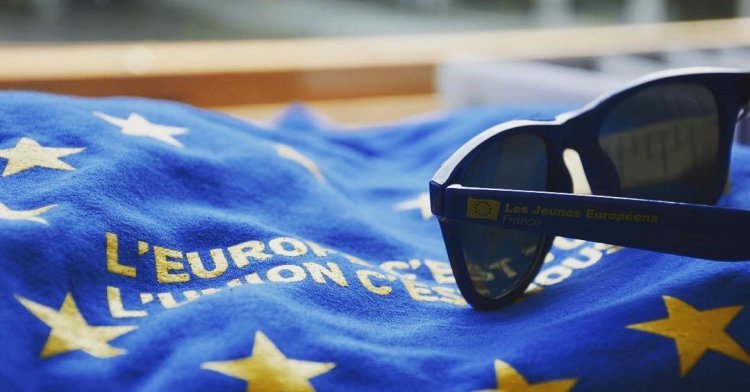For the first time, a Commission President was not approved in unity by the Council. Even more importantly, the Commission President was chosen in a transparent manner through democratic elections by the European people. It is indeed historic, when Jean-Claude Juncker, 59, will get into office in November 2014. The days of the weak and servile José Manuel Barroso will finally be over; now, a president with vision and experience can drive the integration process forward, essentially the first time since Jacque Delors.
Juncker as the conservative candidate…
The pan-European political parties in the European Parliament (with the notable exception of the eurosceptics) nominated lead candidates, so-called Spitzenkandidaten, for the first time in history so that voters would know that the strongest party in the elections would have the right to claim the presidency of the Commission. Juncker, who served 18 years as Prime Minister of Luxembourg, was nominated by the centre-right European People’s Party (EPP) in a convention in Dublin in March 2014.
The election campaign was accompanied with unprecedented public TV debates. Juncker came across like an experienced states-man during his appearances but lacked the charisma and esprit of his competitors like Guy Verhofstadt or Ska Keller. As the EPP came top in the European elections, Juncker rightfully claimed the position as Commission President and Martin Schulz from the Social Democrats (S&D) conceded, as promised, and promised to vote for him in the European Parliament (EP) on 14 July 2014; thus, a simple majority will be easy to achieve for Juncker.
… with troubles to convince the Council
However, the nomination of Juncker by the Council turned out to be more difficult than expected. Heads of states were more than lukewarm about the process that they should concede power to the EP. After all, it was traditionally in their hands to decide behind closed doors who would become the next president of the Commission, trying to make sure that this person would be in their favor if not dependent on them. Although Germany’s Angela Merkel backed Juncker and not Michel Barnier, EU Commissioner for the Single Market, at the EPP convention in Dublin, she turned out to be hostile to him after the EP elections and initially rejected to vote for him.
However, Merkel got enormous domestic pressure to accept Juncker, not least in a surprising move by the influential “Bild-Zeitung” that spoke out in favor of the choice of EU citizens. It took however almost a month for the Council to finally decide in favor of Juncker. The media portrayed the nomination process as being heavily influenced by the most powerful European politician of the day, Angela Merkel, and the David Cameron’s unsuccessful attempt to stop Juncker.
Finally, a 26:2 vote made Juncker the third Luxembourgian to be president of the Commission. Only Cameron and the political pariah Viktor Orban from Hungary voted against him. The UK, after all, became totally isolated with no strategy to convince other countries critical towards Juncker, like the Netherlands and Sweden. Thus, the veteran of EU politics will take over from Barroso.
Too federalist?
Particularly the British press accused Juncker as being “too federalist,” anti-British, a drunkard and not in favor of reforms as Cameron envisions them: steps towards a state-dominated EU with restrictions in the freedom of movement. Yet Merkel, although from the same party family, was also critical towards Juncker because with him the axis Paris-Berlin, that today only consists of Berlin anyways, would not be able to decide upon all major EU policies as it used to be the case during the crisis over the past five years.
For Juncker it will be vital to convince the British people to remain in the EU, even if a possible referendum is organized in 2017. This will be quite a challenge as the British tabloid The Sun found six reasons why Juncker is “the most dangerous man in Europe.” In reality, even Cameron wants to stay in the EU, but with newly negotiated terms. It needs to remain to be seen which alternatives Juncker could offer the UK.
Less austerity, more growth
According to his website, Juncker has five priorities as President of the Commission: the creation of a digital single market, the development of a common EU energy union, the negotiation of the trade and investment partnership with the USA, the continued reform of the economic and monetary union (where he wants to strengthen the Eurogroup), and finally he wants to sort out the “British question” by offering a new deal for the UK.
In comparison to the EPP, he was not tough at all on immigration during the publicly broadcasted TV debates. In general, he is very much on the Christian-social wing of the Conservatives and the Green legend Daniel Cohn-Bendit even called him “the most socialist Christian Democrat there is.” Juncker is also known as a “deal-broker” in EU circles, one of the main qualities requested in Brussels. That is why he originally aimed for the Herman Van Rompuy’s position as the president of the Council.
“We need to be proud to be Europeans again,” wrote Juncker in the EPP manifesto that was approved in March 2014. Juncker wants to “talk about the real Europe again, the Europe that was crafted and imagined by those after the Second World War.” As the chief of the Eurogroup for eight years, he maneuvered successfully the single currency between austerity and growth. He is “allergic” to a North-South divide in the EU, signaling an agenda that will be based on growth.
A step towards overcoming the democratic deficit
With the EP move to nominate Spitzenkandidaten, the Council has lost de facto in influence to the parliament, because the procedure was not laid out in the Lisbon Treaty but the MEPs made a clever interpretation in favor of the EP, and thus the European citizens. Therefore, Juncker’s selection is a major step to overcome the democratic deficit. Although other major reforms are necessary, EU citizens can finally see the direct link between their vote and the EU leadership. Moreover, the Parliament has further gained weight in the inter-institutional competition away from the intergovernmental horse-trading of the Council. That is a major step forward for democracy.
And yet, many EU citizens were not aware that their vote would have an impact on the selection of the Commission President when they went to the polls in May; only 43% took their right to vote in the first place. Nonetheless, this experiment was a success and with all likelihood irreversible in future selections. Thus, the pan-European political parties will be forced to have more European campaigns instead of national ones. For now, the EU finally has a strong man ahead of the institution that is commonly known as the motor or driver of European integration. It will be the Commission and not Berlin that will be the leader of European debates, with an ever increasing impact of the Parliament as well.


Follow the comments: |
|
